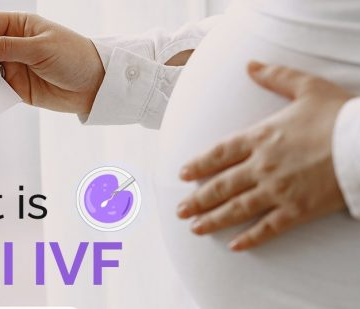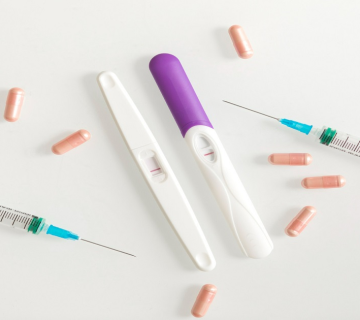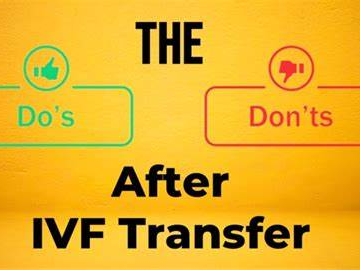
How Long Do You Take Progesterone Shots After IVF Transfer?
Imagine you’ve just finished your IVF embryo transfer. You’re excited, nervous, and maybe a little overwhelmed. You’re counting the days until that pregnancy test, but there’s one thing you keep wondering about: those progesterone shots. They’re not exactly fun, but you’ve been told they’re super important. So, how long do you have to keep taking them? And why do they matter so much?
In this guide, we’re going to walk you through everything you need to know about progesterone shots after IVF. We’ll answer the big question—how long you’ll need them—and dig into why they’re part of the process, what to expect, and how to make it all a little easier. Whether you’re curious about side effects, different progesterone options, or when you can finally stop, we’ve got you covered with clear answers, practical tips, and even a few expert insights. Let’s dive in!
Understanding Progesterone in IVF
What Is Progesterone and Why Does It Matter in IVF?
Progesterone is like the MVP of early pregnancy. It’s a hormone your body makes to get your uterus ready for a baby. Picture your uterus as a cozy bed—if progesterone isn’t there to fluff the pillows and tuck in the sheets, the embryo might not settle in comfortably. In a natural pregnancy, your ovaries pump out progesterone after ovulation to thicken the uterine lining and support the embryo as it grows.
But IVF flips the script. The medicines you take to grow lots of eggs—like follicle-stimulating hormone—can throw your natural progesterone levels out of whack. “IVF medications suppress the body’s ability to produce progesterone on its own, so we step in to help,” says Orion Nightingale, a fertility specialist. Without that extra boost, your uterus might not be ready for the embryo, or the pregnancy could struggle to stick.
Why Are Progesterone Shots Needed After IVF Transfer?
Here’s the deal: during IVF, your doctor controls your cycle to make sure everything happens at the right time. That’s great for getting eggs and embryos, but it can leave your body short on progesterone afterward. If your levels drop too low, the embryo might not implant, or you could face a higher risk of miscarriage.
That’s where progesterone shots come in. After the embryo transfer, they give your body the hormone it needs to keep the uterine lining thick and healthy. Think of it like watering a plant—you’re giving your little embryo the best shot at putting down roots and growing strong.
How Long Do You Take Progesterone Shots After IVF Transfer?
The Usual Timeframe for Progesterone Shots
So, how long are you signing up for these shots? For most people, it’s about 8 to 10 weeks after the embryo transfer. That’s roughly the first trimester of pregnancy. Why this long? Because around 8 to 10 weeks, the placenta—the organ that nourishes the baby—starts making progesterone on its own. Once it takes over, you usually don’t need the shots anymore.
But it’s not a one-size-fits-all answer. “The 8-to-10-week mark is standard, but every patient’s needs are unique,” says Ophelia, a reproductive endocrinologist. Your doctor might tweak the timeline based on your situation, so don’t be surprised if it’s a little shorter or longer.
What Affects How Long You’ll Need Them?
The exact duration depends on a few things. Here’s what might change your progesterone schedule:
-
- Your Health History: If you’ve had miscarriages or low progesterone before, your doctor might keep you on shots longer to play it safe.
-
- Progesterone Levels: Some clinics check your levels with blood tests. If they’re low, you might need to stick with the shots past 10 weeks.
-
- Fresh vs. Frozen Transfer: In a frozen embryo transfer (FET), your body might not make any progesterone naturally, so you could be on shots the full 10 weeks. Fresh transfers might be different depending on your cycle.
-
- Pregnancy Progress: Ultrasounds or other tests might show your doctor how things are going and when it’s okay to stop.
-
- Doctor’s Approach: Every clinic has its own style. Some stop at 8 weeks; others go to 12.
Here’s a quick checklist to talk over with your doctor:
-
- ✔️ Have I had trouble with progesterone or pregnancies before?
-
- ✔️ Are my levels being tested?
-
- ✔️ Is this a fresh or frozen transfer?
-
- ✔️ What’s my clinic’s usual plan?
Keep in mind: don’t stop the shots on your own, even if you’re tired of them. Your doctor will let you know when it’s time.
Different Forms of Progesterone: Shots and Beyond
What Kinds of Progesterone Are Used in IVF?
Progesterone shots aren’t the only game in town. Doctors use a few different types, depending on what works best for you. Here’s the lineup:
-
- Injections: Shots in the butt or thigh, usually once a day.
-
- Vaginal Suppositories: Small inserts you place yourself, often twice daily.
-
- Vaginal Gels: A once-a-day gel applied with an applicator.
-
- Oral Pills: Tablets you swallow, though they’re less common for IVF.
Shots are popular because they deliver progesterone straight into your bloodstream, making them super effective. But each option has its fans, and your doctor might let you pick based on your comfort.
Pros and Cons of Progesterone Shots
Let’s break it down with a table:
| Pros | Cons |
|---|---|
| Really effective | Can hurt going in |
| Once a day (easy to track) | Takes practice to do |
| Steady hormone levels | Some get soreness or lumps |
| Good if vaginal options don’t work | Oil can cause reactions |
Caspian Sterling, a fertility nurse, says, “Shots can feel daunting at first, but lots of patients love the simplicity—just one quick dose and you’re done for the day.” If you’re okay with needles, they might be your go-to.
Other Options Besides Shots
Not into injections? Here’s what else you can try:
-
- Vaginal Suppositories or Gels: These go right where the progesterone needs to work, so they’re great for some people. They’re less painful than shots, but they can feel messy or awkward. Studies show they’re just as effective for most IVF patients (source: a 2021 study in Fertility and Sterility).
-
- Oral Progesterone: Super easy—no needles or applicators—but your liver breaks it down fast, so it’s not as strong for IVF. It’s usually a backup option.
If shots are tough for you, ask your doctor about switching. They might say yes, especially if you’re past the early weeks.
Making Progesterone Shots Work for You
Tips to Make Shots Less of a Hassle
Nobody’s thrilled about daily shots, but you can make them less stressful. Here’s how:
-
- Warm Up the Oil: Cold progesterone oil is thick and stingy. Hold the vial in your hands or run it under warm (not hot!) water for a minute.
-
- Switch Sides: Rotate between your left and right butt cheeks or thighs to avoid sore spots.
-
- Ice First: Numb the area with an ice pack for 30 seconds before you inject.
-
- Relax: Lie down or shift your weight to one leg so the muscle isn’t tense.
-
- Smaller Needle (Maybe): Ask your doctor if a shorter, thinner needle works—it might hurt less.
Do’s and Don’ts:
-
- ✔️ Do warm the oil before you start.
-
- ✔️ Do clean the spot with alcohol first.
-
- ❌ Don’t rush—take your time to get it right.
-
- ❌ Don’t reuse needles or skip doses.
Handling Side Effects Like a Pro
Shots can bring some annoyances, but you’ve got this. Here’s how to deal:
-
- Sore Spots or Lumps: Massage the area gently after the shot or use a warm compress. If it’s red or swollen for days, call your doctor.
-
- Mood Swings: Progesterone can make you feel weepy or tired. Take naps, talk to a friend, or try a walk to lift your spirits.
-
- Nausea: Small snacks throughout the day can settle your stomach. Ginger tea helps too.
-
- Bloating: Drink water and skip salty foods to feel less puffy.
Most side effects fade as your body adjusts. But if you get hives, trouble breathing, or crazy pain, get medical help ASAP—those could be signs of an allergy to the oil.
When and How to Stop Progesterone Shots
Signs It’s Time to Say Goodbye to Shots
You won’t need progesterone shots forever—yay! Your doctor will decide when to stop based on a few clues:
-
- Blood Tests: They’ll check if your progesterone levels are high enough without the shots.
-
- Ultrasound: A healthy heartbeat and growing pregnancy mean the placenta’s probably kicking in.
-
- Timing: Usually around 8-10 weeks, when the placenta takes over hormone duty.
Some clinics stretch it to 12 weeks for extra caution, especially if you’ve had a rocky road before.
Stopping Safely: Don’t Go Cold Turkey
Quitting progesterone isn’t like ditching a bad habit—you’ve got to ease out. Stopping suddenly could stress your pregnancy, so your doctor might suggest a slow taper. Here’s an example (but follow your doctor’s plan!):
-
- Week 1: Drop to every other day.
-
- Week 2: Every third day.
-
- Week 3: Stop completely.
Orion Nightingale warns, “Cutting progesterone off too soon can jeopardize the pregnancy, so trust your doctor’s timing.” Always check in before you change anything.
Answering Your Burning Questions
FAQs About Progesterone Shots After IVF
Got questions? We’ve got answers:
-
- Can I switch from shots to vaginal progesterone?
Yep, sometimes! If shots are rough, your doctor might let you try suppositories or gel. Studies say they work just as well for many (see Human Reproduction, 2020). Ask about it!
- Can I switch from shots to vaginal progesterone?
-
- What if I miss a shot?
Don’t freak out. Take it as soon as you remember, then tell your doctor. One slip-up isn’t the end, but try to stick to the routine.
- What if I miss a shot?
-
- Do the shots hurt a lot?
They can sting, especially at first. Warm oil and ice can help. If it’s unbearable, talk to your doctor—there might be another option.
- Do the shots hurt a lot?
-
- Can I stop early if I feel fine?
Nope! Feeling good doesn’t mean your levels are high enough. Wait for your doctor’s okay.
- Can I stop early if I feel fine?
-
- What’s the latest research say?
A 2022 study in The Journal of Assisted Reproduction found some women with FET cycles might need progesterone past 10 weeks if their natural levels lag. Chat with your doctor about new findings!
- What’s the latest research say?
Wrapping It Up
Progesterone shots might not be the highlight of your IVF journey, but they’re a big deal for giving your pregnancy a solid start. Most people take them for 8 to 10 weeks after the transfer, until the placenta steps up. Along the way, you’ve got options—shots, suppositories, or gels—and tricks to make it all easier. The key? Stick with your doctor’s plan and don’t hesitate to ask questions.
You’re doing something amazing, and those shots are just one part of the ride. Have a tip that worked for you? Struggling with something specific? Drop it in the comments below—we’d love to hear your story and keep this conversation going!



